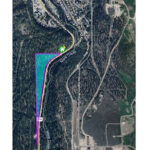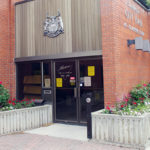Home »

Bennett promoting B.C. at Toronto mining conference
Kootenay East MLA Bill Bennett, who is also Minister of Energy and Mines and Minister Responsible for Core Review is in Toronto this week at the one of the world’s largest international mining conferences to promote exploration and mine development opportunities in B.C. to more than 30,000 investors, prospectors and mining industry executives.

“British Columbia is one of the world’s most pre-eminent mining regions, and our government has made a commitment to this sector by being a leader in encouraging investment and fostering partnerships with communities, First Nations and industry in support of resource development,” Bennett stated.
While in Toronto, Bennett will raise awareness of the Northwest Transmission Line (NTL), which will open up northwest B.C. to as much as $15 billion in mining investment, creating up to 10,000 jobs and generating $300 million in annual tax revenues. Once complete this summer, the line will support access to world-class mineral deposits and the development of new mines. This includes the new $500 million Red Chris mine project – one of the largest copper-gold deposits in the world – scheduled to open this summer and employ 350 people, including many First Nations, in well-paying, family-supporting jobs.
Along with Bennett, over 50 B.C. mining companies – many with exploration and development opportunities in the Northwest – are participating in the Prospectors and Developers Association of Canada conference. Today, over 40% of exploration spending in B.C. takes place in the northwest.

The long-term outlook for mining in B.C. is positive, cites a provincial government press release. Since 2011, three new mines have opened including Copper Mountain, near Princeton, New Afton, near Kamloops and Mount Milligan, northwest of Prince George, providing a total of 1,195 full time jobs.
In 2014, both Red Chris and the $340 million Roman Mine, near Tumbler Ridge, are scheduled to open, providing a total of 725 full-time jobs. Three additional mining projects are permitted and seven major mine expansions have been approved, supporting 3,000 existing jobs and creating 300 new jobs.
“B.C. is Canada’s top copper producer, the country’s only producer of molybdenum and the world’s second-most-important exporter of high-quality steel-making coal. Over the past several years, B.C. has worked to grow its mining industry and seen many new mines come into production, creating thousands of high-paying jobs across the province,” said Pierre Gratton, president and CEO, Mining Association of Canada.
“With the value of B.C.’s mineral production tripling since 2002, the province is now the second largest mining jurisdiction in Canada. As a result, the province has weathered the recent economic crisis better than the rest of Canada, and is in a position to further grow its mining industry, for the benefit of all British Columbians and Canada as a whole,” he added.
The Prospectors and Developer’s Association of Canada (PDAC) represents the interests of the Canadian mineral exploration and development industry. The association was established in 1932 and has 9,000 members.
The production value of mining in 2012 was $8.3 billion, compared to 2001 when it was $2.8 billion.
Mineral exploration has grown exponentially since 2001. In 2001, exploration spending was $29.1 million and in 2013 it was $476 million.
Exploration spending last year was the second-highest on record, with 2012 being the highest with $680 million. B.C. accounts for approximately 19% of all exploration spending in Canada. In 2001, that figure was less than six per cent.
Every British Columbian uses almost 23,000 kilograms (about 50,000 pounds) of mined products each year. When you brush your teeth, turn on a light, drive a car, ride your bike, turn on the television, use a camera or telephone – you are supporting the mining industry.
In 2012, more than 30,000 people were employed in mining, mineral exploration and related sectors.
In 2001, the average mining salary plus benefits was $81,000. In 2013, it was $121,000.
Today B.C. has 19 operating mines (nine coal and 10 metal). In 2001, there were 15 operating mines (seven coal and eight metal).
E-KNOW







